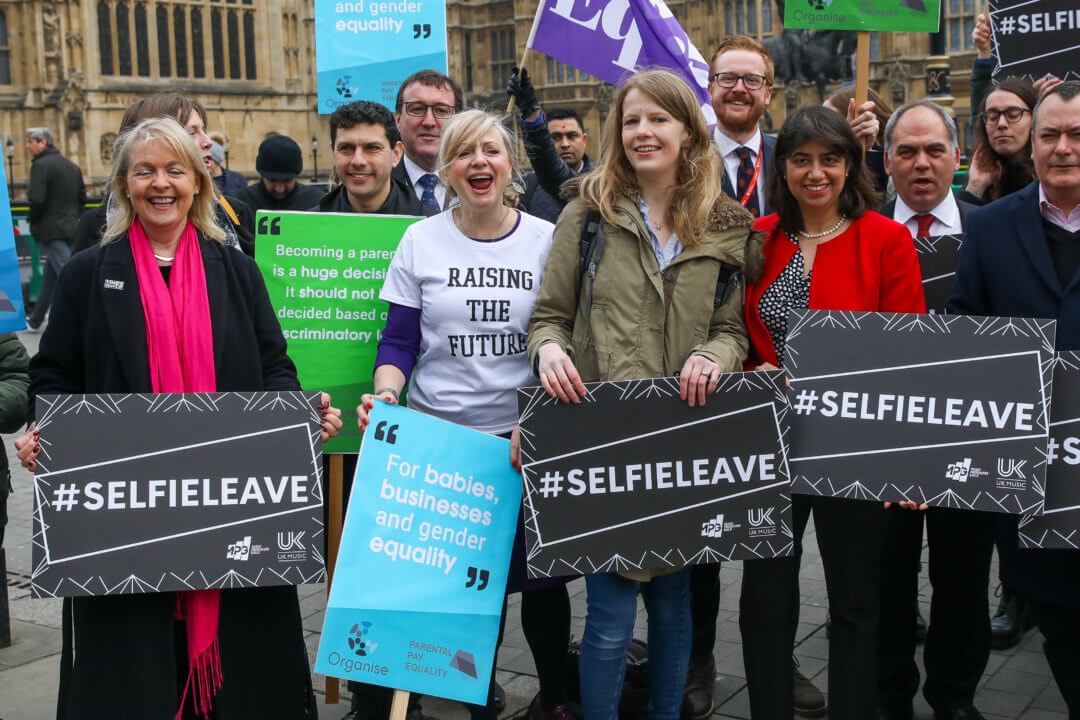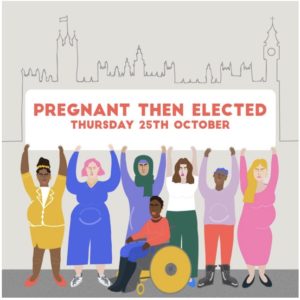This summer the government announced a plan to give neonatal leave to parents of babies born prematurely. Parents of premature or sick babies often spend many weeks or months in neonatal wards, with many dads back at work within weeks while mothers spend the majority of their leave sitting next to incubators, often far from home.
For self-employed families there is no support for the fathers in this situation, and mothers have the additional stress of the potential loss of their business if they are the sole carer of a premature baby
We have worked with the charity The Smallest Things to pick out the most important questions to answer to help self-employed parents of premature and sick babies.
Do fill in the consultation using the guidance below
Question 2. Do you agree that parents of babies who need to spend time in neonatal care should have access to additional pay and leave? • Strongly agree Possible answers – Strongly agree • Agree • Neither agree nor disagree • Disagree • Strongly disagree • Don’t know
We believe that parents whose babies spend time in neonatal care should receive additional financial support, and this must include the self-employed. Include personal experience here if you can.
Question 3. Do you agree that access to Neonatal Leave and Pay should be restricted to parents whose children have spent a minimum of 2 weeks in neonatal care, i.e. are seriously ill or likely to be in hospital for an extended period of time? • Strongly Disagree Possible answers – Strongly • Agree • Neither agree nor disagree • Disagree • Strongly disagree • Don’t know
Given that fathers are currently only entitled to two weeks paid paternity leave, and self-employed fathers get no leave whatsoever, restricting neonatal leave to those parents whose babies spend more than 2 weeks in neonatal means there will be families where they father is back at work before the baby is out of hospital, and we believe this puts unnecessary strain on families. Also, there may be babies born with conditions that mean they are not necessarily in a neonatal ward, but could be in specialist paediatric wards, and these should also be included. (Include personal experience if relevant)
Question 4. If you agree that access to Neonatal Leave and Pay should be restricted to parents whose babies are most seriously ill, after what length of time in neonatal care should the parents’ entitlement to Neonatal Leave and Pay crystallise? • Other
We believe that babies requiring one week of extra neonatal care should get additional leave, in order for fathers who only qualify for 2 weeks statutory paternity leave to be able to properly support the mother and share the care of their child. This is particularly important for self-employed fathers and partners who currently do not qualify for any pay or leave whatsoever, may be under incredible pressure to leave a seriously ill baby in order to go back to work. Having some financial support for fathers in this period would help ease the pressure during an incredibly stressful time.
Question 5. Are there other circumstances that you think should be considered for inclusion within the scope of Neonatal Leave and Pay? What are they?
The current Government proposals do not include self-employed parents and we are concerned that neonatal leave and pay would not be offered to this group. Given the well-documented problems that affect this group, who currently have no paternity or shared parental pay, it is vital that all families spending more than one week in
neonatal care should have access to additional leave and pay. We urge the government to take this opportunity to make the new legislation fit for purpose to include the 15% of the workforce who are self-employed and give self-employed parents the support to visit their new babies in neonatal care. If you are self-employed and have experience of having a premature baby please include any difficulties you faced here.
Question 6 Do you agree that Neonatal Leave should be a ‘day one right’ in line with Maternity Leave, Adoption Leave and Parental Bereavement Leave? Agree Possible answers – Strongly • Agree • Neither agree nor disagree • Disagree • Strongly disagree • Don’t know
Premature babies aren’t a thing you can plan for, and as the purpose of this legislation is to support families in these stressful situations and setting out clear guidelines for employers, we believe it is counterproductive to exclude some families. We also believe self-employed families should qualify, and that similar qualifying criteria to Maternity Allowance should be used.
Question 7 Do you agree that the qualifying period of service for Statutory Neonatal Pay should mirror the qualifying period of Statutory Paternity and Shared Parental Pay? • Strongly Disagree Possible answers – Strongly • Agree • Neither agree nor disagree • Disagree • Strongly disagree • Don’t know
We believe that this should be a day-one right and extend to self-employed people. We have already seen the effect that excluding the self-employed from shared parental pay has on women’s businesses, and It would be a huge missed opportunity to exclude the 15% of the workforce that are currently self-employed from neonatal pay. Leave without pay effectively excludes families on low incomes. The Taylor Review recommended equalising the parental leave regimes for employed and self-employed parents, and these two consultations are an opportunity to urgently address the shortcomings in a system that is not designed for modern families.
Question 8. Do you agree that the entitlement to Neonatal Leave should be capped? Strongly Disagree Possible answers – Strongly agree • Agree • Neither agree nor disagree • Disagree • Strongly disagree • Don’t know
To ensure that parents of extremely poorly babies are supported, the length neonatal leave should not be capped, as this could add to additional stress, and could result in some families having their leave entitlement run out while their baby is still extremely ill in a neonatal unit.
Question 9. Do you agree that the maximum number of weeks of Neonatal Leave should be the same as the maximum number of Neonatal Pay in order to ensure eligible parents can receive pay throughout their leave period? • Strongly Agree Possible answers – Strongly agree • Agree • Neither agree nor disagree • Disagree • Strongly disagree • Don’t know
We strongly believe that the entire period of neonatal leave should be paid, recognising the extreme financial strain that families will be under with one or both parents not working. Paying for travel, hospital parking, accommodation and food outside of the home are all additional expenses that many parents of premature babies incur so we do not believe that the financial support should be capped.
Question 11 Do you agree that Neonatal Leave and Pay should be taken in a continuous period at the end of existing entitlements to family-related leave and pay, e.g. Maternity or Paternity Leave? Strongly Disagree Possible answers – Strongly agree • Agree • Neither agree nor disagree • Disagree • Strongly disagree • Don’t know
We believe that for some families the ability to share neonatal leave in blocks between the mother and the father should also be an option, particularly for self-employed parents, where either the mother or the father’s business may require their critical attention at some point. Restricting the leave to a continuous block where work is not allowed could be detrimental, so we recommend building in some flexibility for the self-employed.
Question 12 Do you agree that a father/partner should be required to give notice in advance of the end of their other statutory leave entitlement to Paternity Leave in order to take Neonatal Leave? Disagree Possible answers – Strongly agree • Agree • Neither agree nor disagree • Disagree • Strongly disagree • Don’t know
We believe that fathers should be entitled to take neonatal leave at other points in first year, as the end of the statutory 2 weeks paternity leave may not be the most useful time for the family. They should be required to indicate an intention to take neonatal leave but with flexibility on the dates.








 On Thursday 25 October, we are partnering with
On Thursday 25 October, we are partnering with